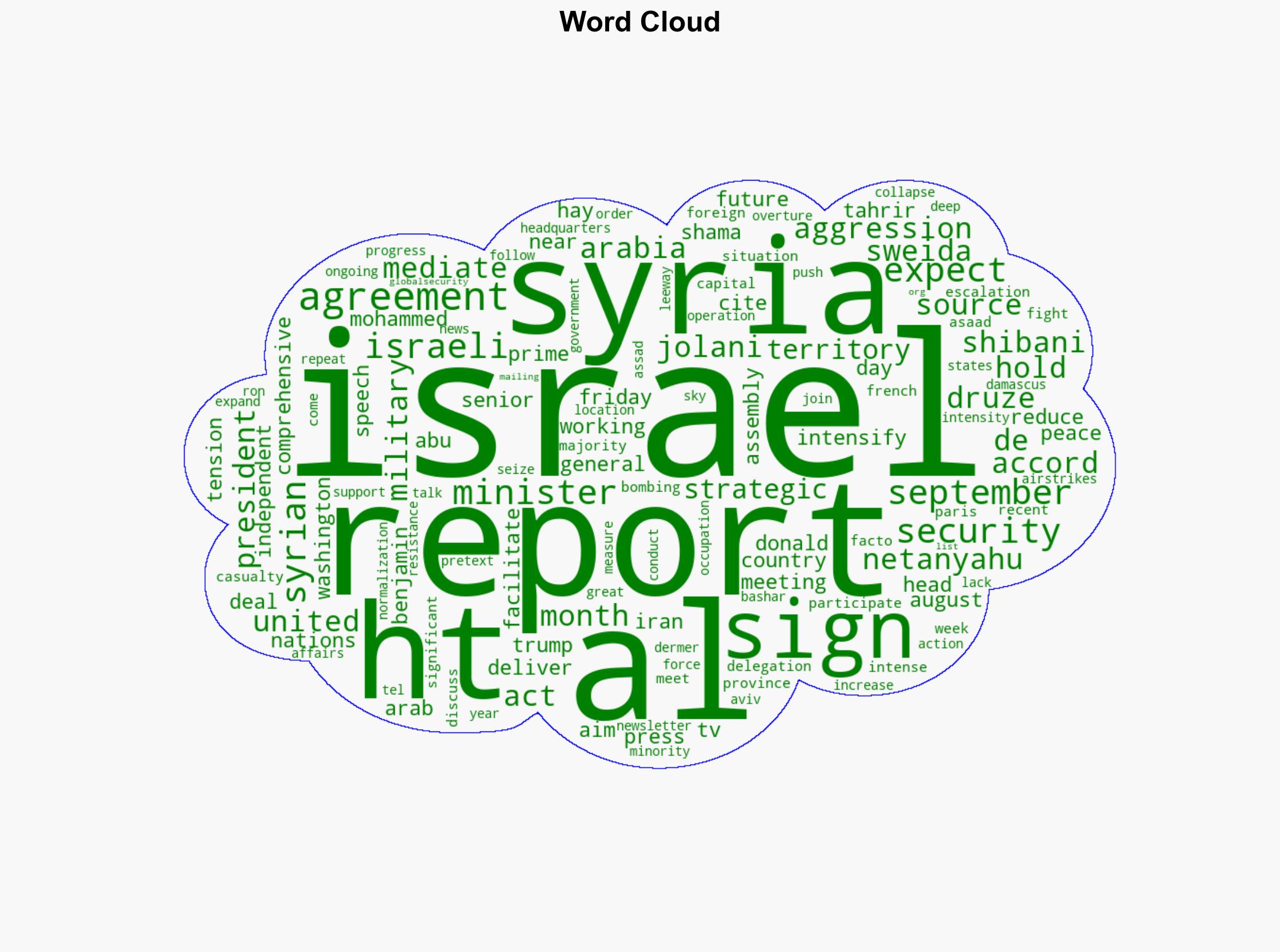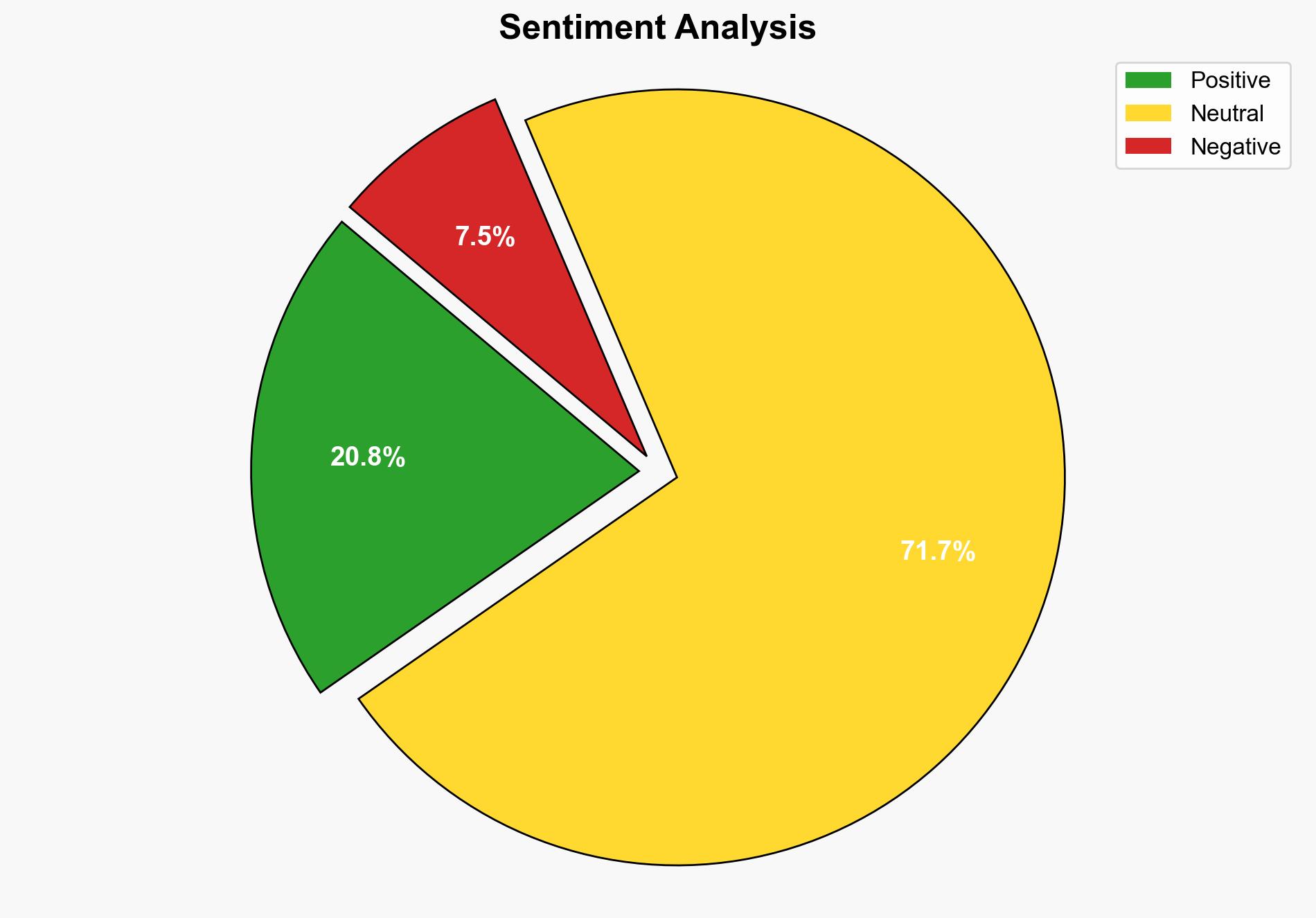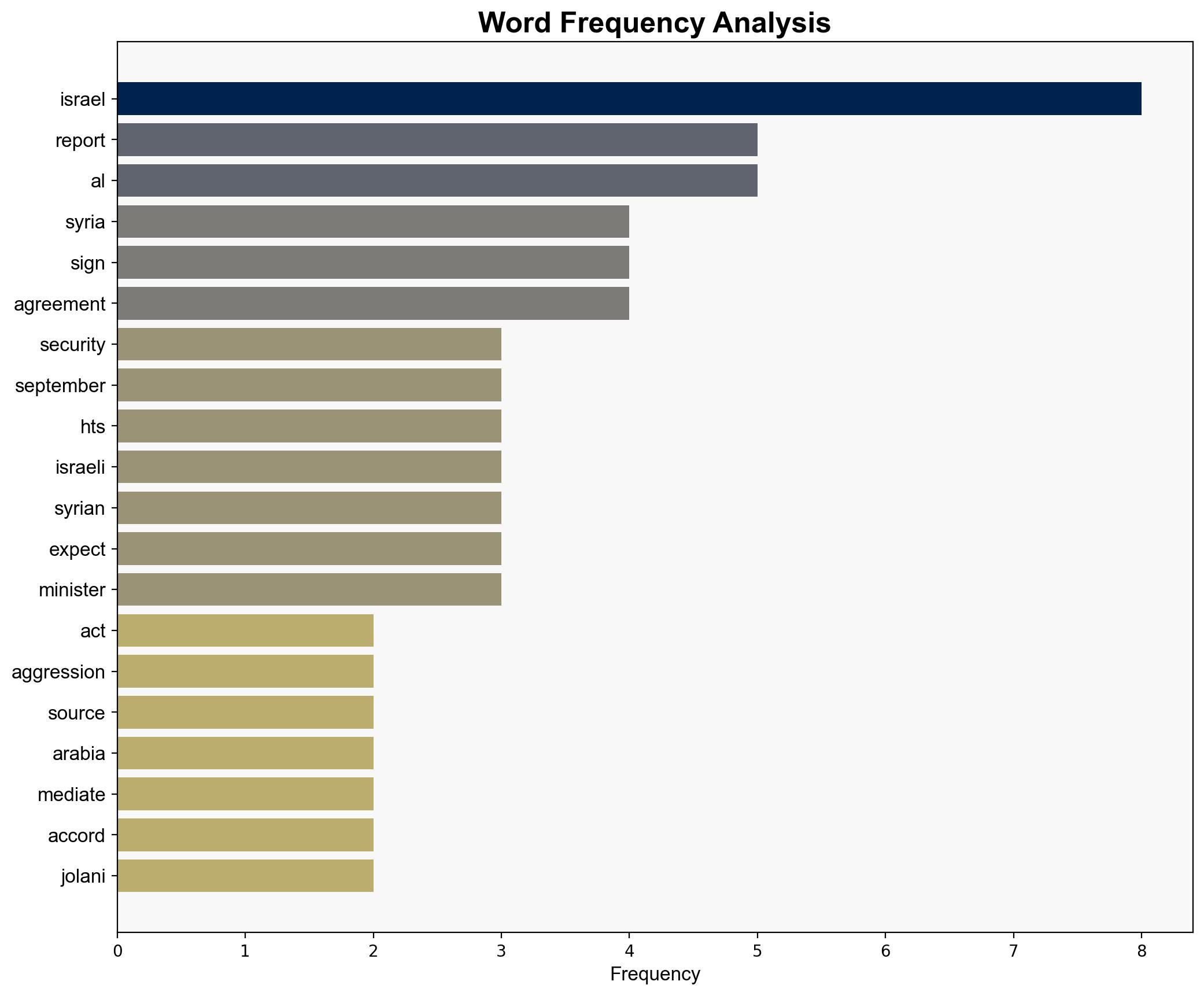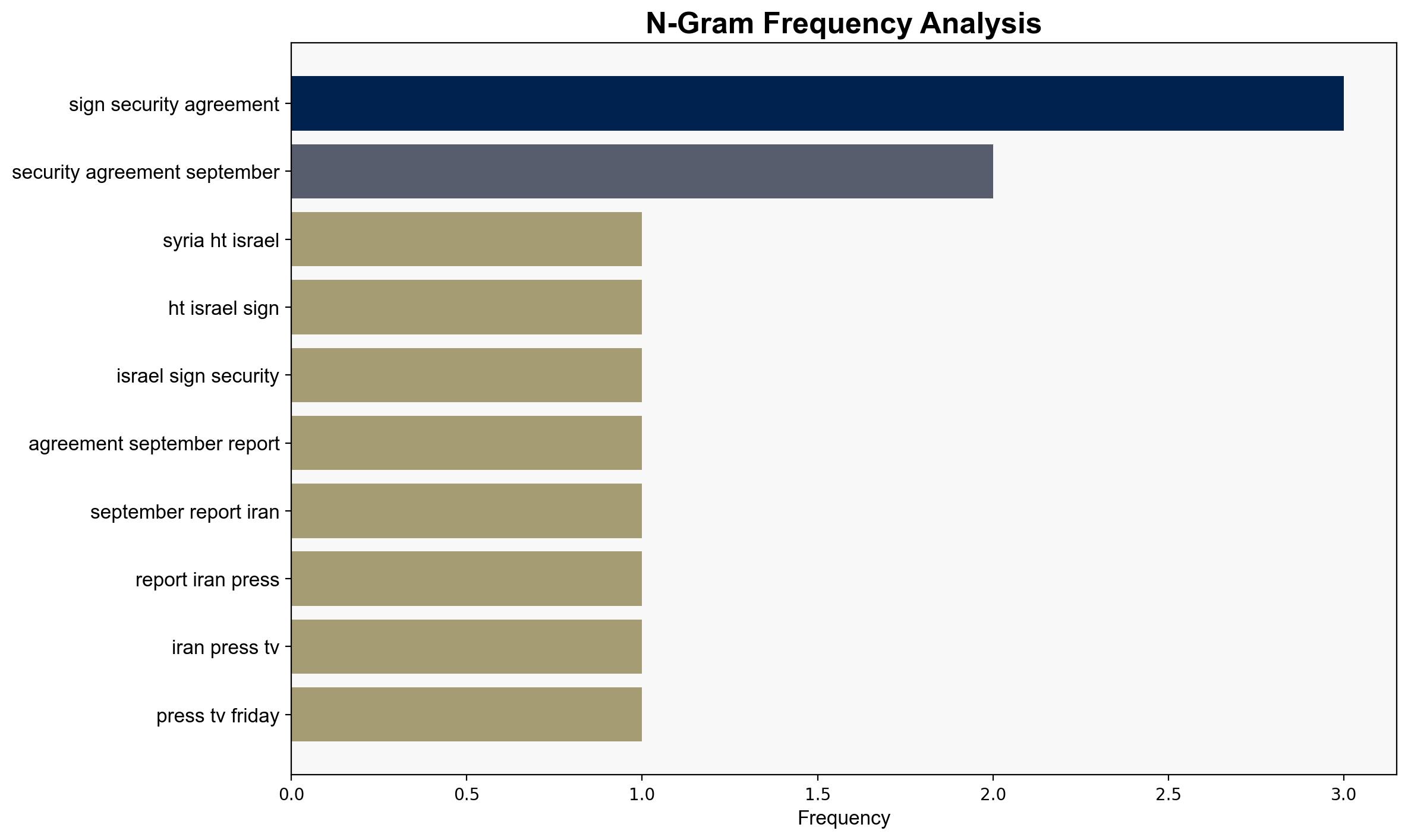Syria’s HTS Israel to sign ‘security agreement’ in September Report – Globalsecurity.org
Published on: 2025-08-23
Intelligence Report: Syria’s HTS Israel to sign ‘security agreement’ in September Report – Globalsecurity.org
1. BLUF (Bottom Line Up Front)
The most supported hypothesis is that the purported security agreement between Israel and HTS is a strategic maneuver by Israel to stabilize its northern border and counter Iranian influence in Syria. Confidence level is moderate due to the lack of corroborative evidence and potential disinformation. Recommended action is to increase intelligence collection on Israeli and HTS activities and engage in diplomatic channels to verify the report’s validity.
2. Competing Hypotheses
1. **Hypothesis A**: The security agreement is genuine and aims to reduce tensions between Israel and HTS, potentially leading to broader regional stability.
– **Supporting Evidence**: Reports of meetings between Syrian and Israeli representatives, mediation by the United States, and strategic discussions in Paris.
– **Contradictory Evidence**: HTS’s historical stance against Israel and lack of official confirmation from involved parties.
2. **Hypothesis B**: The report is a strategic deception or misinformation, possibly by a third party, to manipulate regional dynamics or discredit involved parties.
– **Supporting Evidence**: Lack of corroboration from reliable sources, potential benefits for Iran or other actors in sowing discord.
– **Contradictory Evidence**: Detailed accounts of meetings and discussions, which could imply some level of truth.
3. Key Assumptions and Red Flags
– **Assumptions**: The report assumes HTS’s willingness to negotiate with Israel, which contradicts its historical ideology. It also assumes Israel’s strategic interest in formal agreements with non-state actors.
– **Red Flags**: Absence of official statements from Israel or HTS, potential bias in the reporting source, and the timing of the report coinciding with heightened regional tensions.
4. Implications and Strategic Risks
– **Geopolitical Risks**: If true, the agreement could alter power dynamics in the region, potentially isolating Iran and affecting Russian interests.
– **Escalation Scenarios**: Failure of the agreement or its exposure as misinformation could lead to increased hostilities, impacting civilian populations and regional stability.
– **Psychological Impact**: The perception of Israel negotiating with HTS could influence public opinion and affect alliances.
5. Recommendations and Outlook
- Enhance intelligence operations to verify the authenticity of the report and gather more information on the alleged negotiations.
- Engage in diplomatic discussions with regional allies to assess their perspectives and potential responses.
- Scenario Projections:
- Best Case: The agreement is genuine and leads to reduced hostilities and increased regional stability.
- Worst Case: The report is misinformation, leading to increased tensions and conflict escalation.
- Most Likely: The report contains elements of truth but is exaggerated or misinterpreted, resulting in limited immediate impact.
6. Key Individuals and Entities
– Abu Mohammed al-Jolani
– Benjamin Netanyahu
– Donald Trump
– Asaad al-Shibani
– Ron Dermer
7. Thematic Tags
national security threats, cybersecurity, counter-terrorism, regional focus





